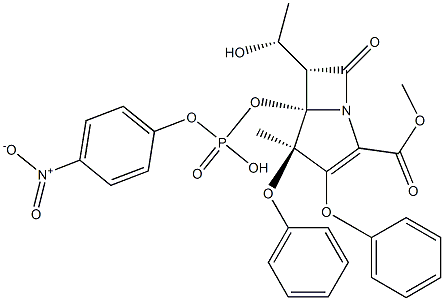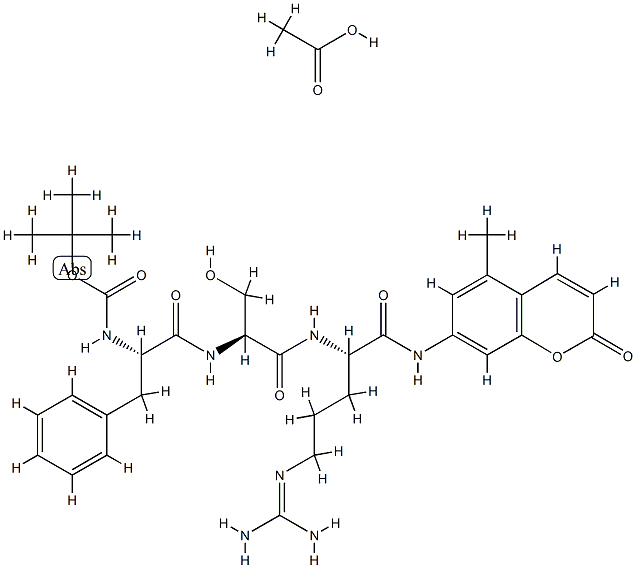Proteinase K from Tritirachium album limber , ≥20units/mgdryweight , 39450-01-6
Synonym(s):
Endopeptidase K;Proteinase K from Tritirachium album
CAS NO.:39450-01-6
Empirical Formula: C29H27N2O12P
Molecular Weight: 626.505
MDL number: MFCD00132129
EINECS: 254-457-8
| Pack Size | Price | Stock | Quantity |
| 25MG | RMB476.00 | In Stock |
|
| 100MG | RMB1103.20 | In Stock |
|
| 1G | RMB9599.20 | In Stock |
|
| others | Enquire |
PRODUCT Properties
| Density | 1.1g/cm3 |
| bulk density | 35kg/m3 |
| storage temp. | 2-8°C |
| solubility | H2O: 10 mg/mL, slightly hazy, brown-yellow |
| form | powder |
| color | white |
| PH | pH7.5~12 |
| biological source | microbial (T.album T. ALBUM) |
| Water Solubility | Miscible with water. |
| Specific Activity | 30units/mg protein |
| InChIKey | CDWGKFQEIBBJOF-BIZWTRPUNA-N |
| SMILES | N12[C@](OP(O)(OC3=CC=C([N+]([O-])=O)C=C3)=O)([C@H]([C@H](O)C)C1=O)[C@](C)(OC1=CC=CC=C1)C(OC1=CC=CC=C1)=C2C(OC)=O |&1:1,16,17,22,r| |
| CAS DataBase Reference | 39450-01-6 |
Description and Uses
Proteinase K is a proteolytic enzyme (a serine protease) naturally found in the mold Tritirachium album. In solution, it is stable over a pH range of 4.0–12.5 with an optimum of pH 8.0, and a temperature range of 25°C–65°C. The enzyme has two binding sites for Ca++, though in the absence of this divalent cation some catalytic activity is retained. Maximum proteinase K activity is observed with the inclusion of 1 mM Ca++ in the reaction buffer. Proteinase K digestion is routinely performed at 50°C, and occasionally in the presence of EDTA to inhibit labile, Mg++-dependent nucleases. Proteinase K is prepared commonly as a 20 mg/mL stock solution in sterile water (stable for 1 year at ?20°C) or in a solution of 50 mM Tris, pH 8.0, 1 mM CaCl2 (stable for months at 4°C). It is generally used at a working concentration of up to 50 μg/mL in any of a number of buffer formulations, including those that contain as much as 0.5% SDS[1].
Useful for the proteolytic inactivation of nucleases during the isolation of DNA and RNA.
Removes endotoxins that bind to cationic proteins such as lysozyme and ribonuclease A.
Reported useful for the isolation of hepatic, yeast, and mung bean mitochondria
Determination of enzyme localization on membranes
Treatment of paraffin embedded tissue sections to expose antigen binding sites for antibody labeling.
Digestion of proteins from brain tissue samples for prions in Transmissible Spongiform Encephalopathies (TSE) research.
Safety
| Symbol(GHS) |  GHS08 |
| Signal word | Danger |
| Hazard statements | H315-H319-H334 |
| Precautionary statements | P261-P264-P280-P284-P302+P352-P305+P351+P338 |
| Hazard Codes | Xn |
| Risk Statements | 36/37/38-42 |
| Safety Statements | 23-24-26-36/37-22-45 |
| WGK Germany | 1 |
| F | 10 |
| HS Code | 35079090 |


